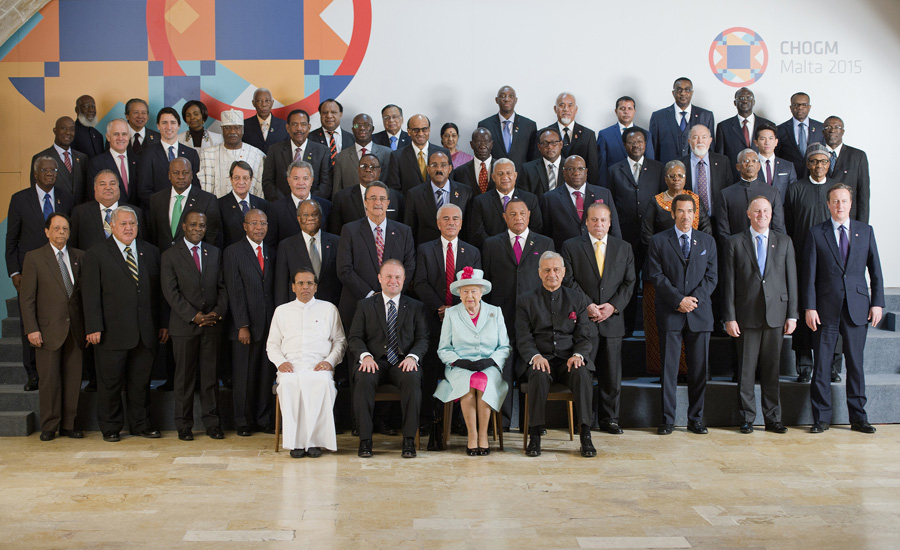 Commonwealth leaders held their Malta Summit in November. The House of Lords looked at the outcomes during a 17 December debate.
Commonwealth leaders held their Malta Summit in November. The House of Lords looked at the outcomes during a 17 December debate.
The House of Lords held a debate on 17 December on the outcome of the Commonwealth Heads of Government Meeting in Malta.
Lord Luce said in opening the debate that the Malta Summit had provided a “number of reasons” to be enthusiastic about the Commonwealth.
Speeches dealt with the election of Baroness Patricia Scotland as the next Commonwealth Secretary-General, human rights across the Commonwealth and initiatives on Climate Change.
You can find some of the highlights from the debate below.
Here is the video of the 17 December debate, courtesy of Parliamentlive.tv.
Highlights from the House of Lords 17 December debate on CHOGM 2015 outcomes
Lord Luce opened the debate:
- “A number of reasons to be enthusiastic about the Commonwealth”.
- The next CHOGM (Commonwealth Heads of Government Meeting) will be in the UK and the UK must start working now on its arrangements.
- Congratulations to Baroness Patricia Scotland who will provide “dynamic leadership” to the Commonwealth as the incoming Secretary-General.
- With the weakening role of the European Union in the world, the UK is still able to play a “constructive” role in the world. The Commonwealth offered an “exceptional opportunity” as no other former empire had transformed into a grouping of equals.
- “Contact” had to remain the heartbeat of the Commonwealth.
- Time to change the UK school curriculum to teach young people about the Commonwealth. All UK secretaries of state must be made “to think Commonwealth and act Commonwealth” while attending the necessary Commonwealth meetings themselves and promoting the grouping.
- The new Secretary-General should think about restructuring the Commonwealth.
- Described the Commonwealth as an “engine of soft power”.
- The Commonwealth needed “a breath of fresh air” and the Secretariat must improve the visibility of the Commonwealth.
- Canada will also have an important role to play.
- Soft power organisations are important in today’s world.
- The UK had seen the Commonwealth as a minor legacy issue to be managed but it could not take the Commonwealth for granted today.
- The Commonwealth is a “networking forum” with a role for promoting human rights, good governance and the rule of law.
- The potential for intra-Commonwealth trade is “huge”.
- The Commonwealth is an “extraordinary club” for its citizens, building relationships in learning, sports and culture.
- The new Secretary-General was “an inspired appointment”.
- The UK has an opportunity to make real contributions to the Commonwealth in the next two years: “the more we put in, the more we will take out”.
- As Chair of the Commonwealth Business Forum, there is a “renewed optimism”.
- A key decision in Malta had been the green finance facility which had been “the most ambitious thing the Commonwealth has done in a long time”.
- CHOGM 2015 succeeded in re-energising the Commonwealth.
- The UK must build on Malta’s chairmanship.
- The professional, social and cultural network of people is key to the working of the Commonwealth.
- The Commonwealth Secretariat must become less top down, look at developing regional offices in Asia, Africa and the Caribbean, increase its visibility and strengthen partnerships and finding a “different way of working to maximise impact”.
- The UK can work with the Commonwealth Secretariat to make it “less top down and more inclusive”.
- It is hard to understand the 2015 CHOGM communiqué statements on violence and discrimination when laws discriminating against homosexuality remain on some member countries’ book, creating a “disconnect”.
- 31 Heads of Government attended the Malta meeting which was “not a very good turnout” in comparison with other global meetings.
- India will be a powerhouse and the Commonwealth needed to get it more on board.
- It is “impossible to overemphasise” the role the Queen plays in holding the Commonwealth together.
- Britain will be judged by its contribution to the Commonwealth, not by its history.
- “The Commonwealth is a ready-made trading network”.
- It includes important trading blocs with vast trading opportunities.
- The diversity of the Commonwealth makes it “hard to describe…and hard to define” and the media find it hard to write about Commonwealth meetings.
- CHOGM had been a curtain raiser for climate change talks in Paris and continued to provide an “asset for good” in today’s world.
- The Commonwealth could be a “nimble network” that gets things done.
- It had brought about change in Sri Lanka because of CHOGM focus on the country.
- Many in the Commonwealth will look to the UK on countering extremism while upholding the principles of Magna Carta.
- There is a need to promote the Commonwealth to young people so they can make more sense of it by the next CHOGM.
- The Commonwealth Secretariat was a “poor relation” with limited resources.
- It is time to welcome new members to the Commonwealth
- It is not a choice for the UK between the Commonwealth and the European Union.
- The Commonwealth could use the faith groups with “networks of leadership and expertise” to tackle extremism.
- The Commonwealth Diaspora is also keen to help.
- The Foreign Office looked forward to working with Baroness Scotland who could count on its support for reforms in the Commonwealth.
- The UK plans to hold an anti-corruption summit in 2016
- The UK will focus on increasing the Commonwealth capacity to counter extremism and promote a small territories agenda.
More from CHOGM 2015:
Round Table Malta Notebook – notes from the Malta Summit:
- Part I
- Part II
- Part III
- Find out more about The Round Table.



